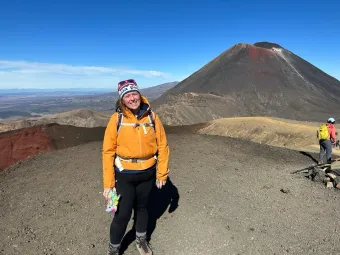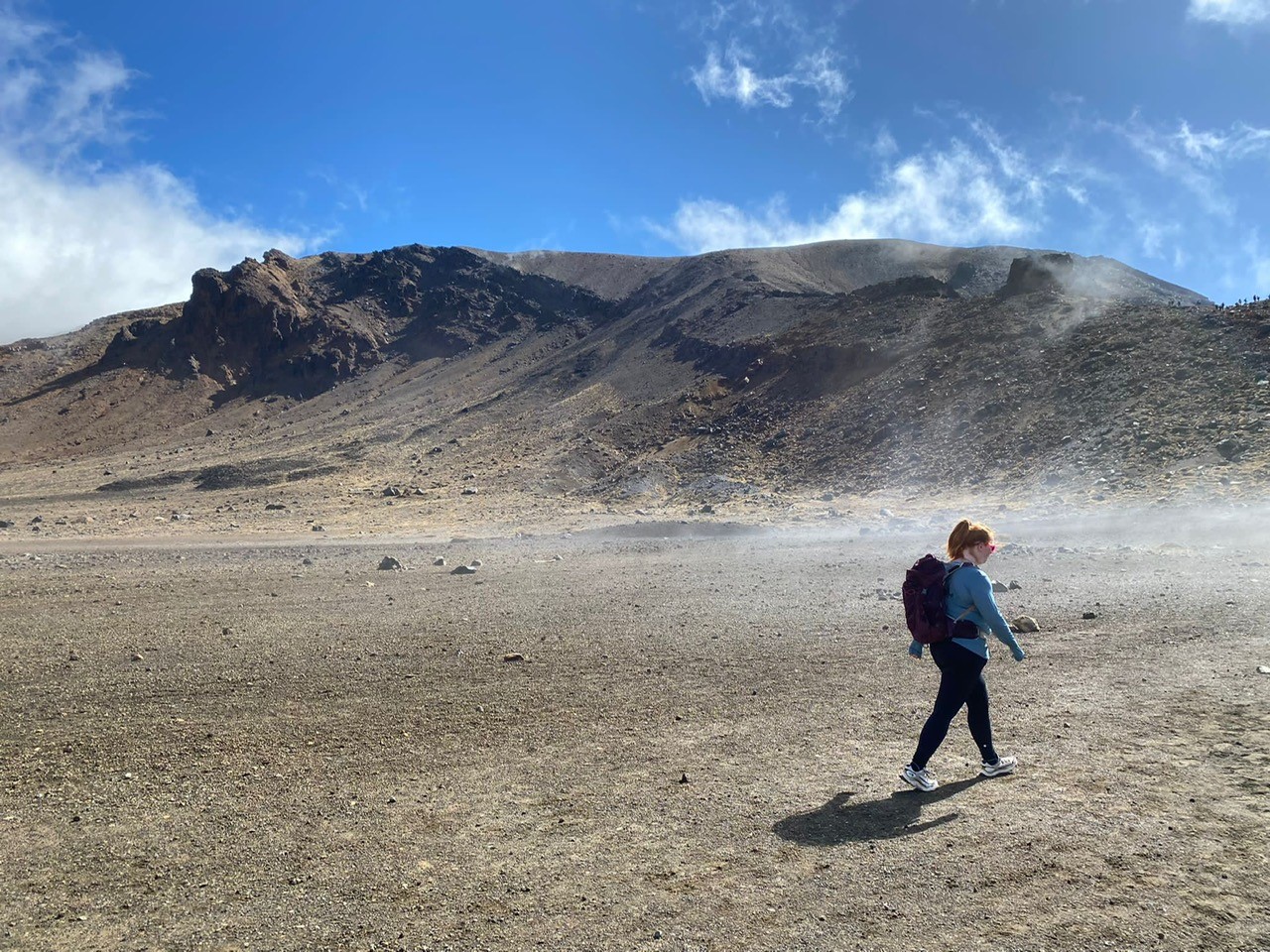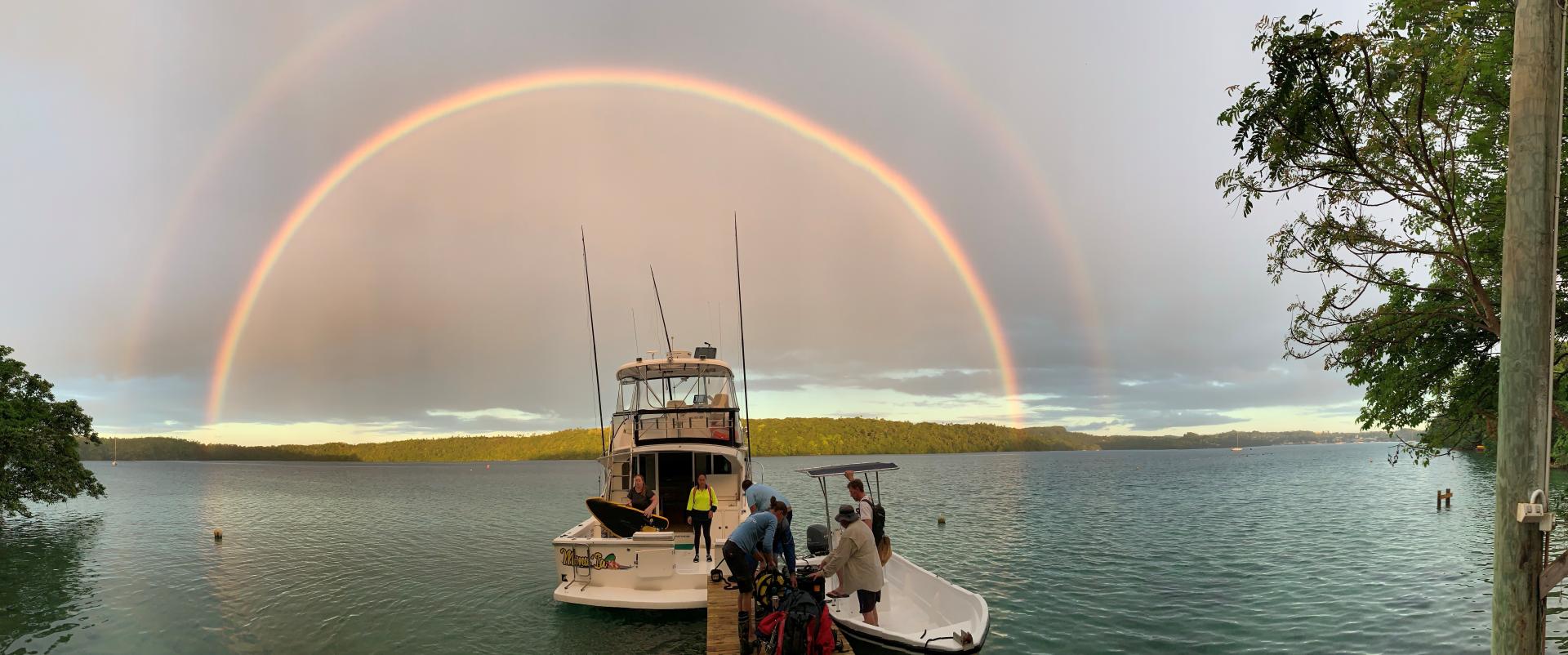
Volcanic eruptions are one of the major natural hazards on our planet. Not only do they pose risks to people and property in surrounding communities, but they can damage critical infrastructure including the subsea telecommunications cables that support 99% of our digital communications globally.
Scientists from the National Oceanography Centre (NOC) are at the forefront of studying marine volcanic eruptions helping to minimise their impact and protect people’s lives. For this month’s scientist spotlight, we spoke to Dr Izzy Yeo about her exciting role in answering some of the biggest questions in ocean science.
What is your role in research at NOC?
I am a Senior Research Geoscientist and a Volcanologist at NOC, based in Southampton. My main research interest is the interaction between volcanic processes and the oceans. It’s likely at least two thirds of the planet’s volcanoes lie underwater, which makes them very hard to study. Because the seafloor isn’t mapped in its entirety in high enough resolution yet, we don’t even know where a lot of them are. I work on volcanoes that lie deep under the sea and those that lie in shallower water. The shallow ones can be very dangerous, because mixing of hot rocks and water can generate explosive reactions and other hazards. I also conduct research on marine pollutants, particularly those produced by onshore mining, and on how we study and monitor human impacts on the seafloor.
What drew you to working in this area?

My interest in volcanoes started when I was a child, when I was given a book on the eruption of Parícutin in Mexico which happened in 1943. This type of eruption builds a new volcanic cone where there wasn’t one before. In this case, the eruption happened through a farmer’s cornfield when nobody was expecting it. At the time I think I was most excited about the thought of lava bursting through a farm, but now the story really highlights for me the interaction between Earth’s natural processes and communities. Volcanic eruptions have built the planet we all live on, but their eruptions and products can also be highly dangerous. I am really proud of the work everyone in my team does to better understand, forecast and mitigate these risks to both protect people’s lives and minimise the impact of natural hazards.
What science are you currently working on?

My research recently has been focused on the eruption of Hunga Volcano (also known as Hunga Tonga – Hunga Ha’apai) in the Kingdom of Tonga. This was the most explosive volcanic eruption we’ve recorded with modern instrumentation and had many impacts on the seafloor and the islands and communities around it. Our work has focused on understanding how the eruption broke the seafloor cables that connect Tonga to the rest of the world, cutting off the internet to an entire nation. We discovered than as the eruption collapses into the ocean it generates huge, very fast-moving submarine flows that can travel for more than a hundred kilometres over the seafloor. In the future we will be continuing to try to better understand the eruption of Hunga Volcano, and we also have a project starting that will try and understand how fluid flow operates in big volcanoes and whether it can make them more dangerous.
What is your favourite thing about the work you do?
My favourite thing about my work is my colleagues. I am part of a team of brilliant people who help and encourage each other to answer some of the biggest questions in ocean science and I am supported by some of the best marine engineers and equipment in the world.

The encouragement and mentorship I have received from senior scientists and management has allowed me to develop my career, and I benefit from the support of all kinds of other brilliant professionals too – like our science project management and communications teams. There is nothing quite like being on a world class research vessel, with brilliant people, in the middle of the ocean, trying to solve a problem that requires everyone’s expertise. It’s the ultimate in teamwork and I’ve never experienced anything quite like it.
What impact does your science have on society?
The work we have done in Tonga and on other projects focused on cable vulnerability globally has helped to understand the risk natural hazards pose to subsea telecommunications cables, which support 99% of all digital communications. The outputs from this work have aided in cable routing and repairs. My team continue to work to better understand the impact of natural hazards, particularly volcanic eruptions, on Small Island Developing States so that we can work to reduce vulnerability and provide effective responses to events. In the future I hope we can work towards solutions to better monitor subsea volcanoes and forecast activity.

More from Dr Izzy Yeo
Izzy Yeo talks through the impact of the Hunga Tonga–Hunga Haʻapai volcano. This video is part of the ‘Into the Blue Podcast’ series.
Join the NOC Ocean Alliance
If you or your organisation would like to find out more about supporting our endeavours, contact us at giving@noc.ac.uk. A gift allows you to have a direct impact on world leading ocean research and innovation, and helps ensure NOC continues to make global impact from the coast to the deepest ocean. Whatever your passion – combating climate change, conserving and protecting ocean life, or equipping the next generation of marine scientists, you can donate here.